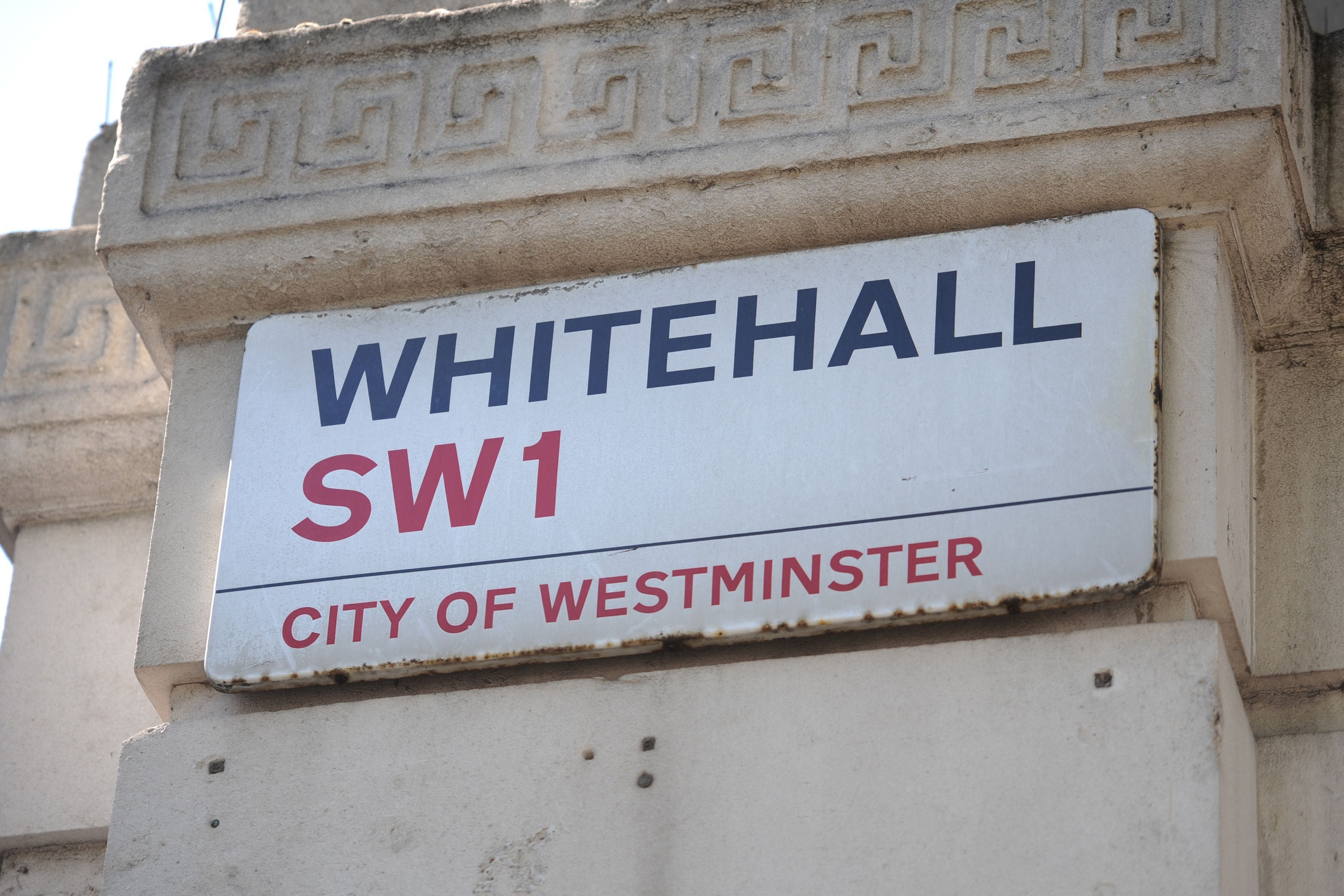Civil servants told they must implement minister’s choice to ignore Strasbourg
Civil service unions reacted with fury to the suggestion that officials could be asked to break international law.

It is the “responsibility” of civil servants to “implement” a minister’s decision to ignore injunctions from Strasbourg blocking flights to Rwanda, the Government has set out in draft guidance.
The Cabinet Office detailed advice for Whitehall on the application of the Rwanda Bill in a letter to the Home Office’s top civil servant, which will be formally issued if the legislation passes through Parliament unamended.
Civil service unions reacted with fury to the suggestion that officials could be asked to break international law.
The Government is seeking to assuage concerns by right-wing Tory MPs that the legislation does not do enough to block last-minute injunctions from the European Court of Human Rights.
A late-night order by the Strasbourg court grounded the first flight planned to carry asylum seekers to Kigali in 2022.
Rishi Sunak said there are circumstances under which he would be prepared to ignore the so-called Rule 39 orders.
Downing Street said the Government wants to provide “clarity” for ministers and officials about the orders.
The Prime Minister’s official spokesman said: “What we are looking to do is to provide further guidance so there is clarity for ministers and civil servants on the application of this.
“This is simply about making sure that we’ve taken every conceivable step to ensure that we get flights off the ground as quickly as possible should the Bill progress through the House, as we continue to believe it will.”
This is a problem of the Government’s own making and they should not be putting civil servants in this invidious position
The draft guidance set out in the letter to Home Office permanent secretary Sir Matthew Rycroft reads: “As a matter of UK law, the decision as to whether to comply with a Rule 39 indication is a decision for a Minister of the Crown.
“Parliament has legislated to grant ministers this discretion. The implications of such a decision in respect of the UK’s international obligations are a matter for ministers.
“In the event that the minister, having received policy, operational and legal advice on the specific facts of that case, decides not to comply with a Rule 39 indication, it is the responsibility of civil servants – operating under the Civil Service Code – to implement that decision. This applies to all civil servants.”
But unions said this puts civil servants in an “invidious position”.
Prospect deputy general secretary Garry Graham said: “This in effect could put civil servants in an impossible position where the choice is potentially between breaking international law, disobeying the instructions of a minister (and facing potential disciplinary action) or resigning.
“This is a problem of the Government’s own making and they should not be putting civil servants in this invidious position.”
Dave Penman, general secretary of the FDA union which represents senior civil servants, told the PA news agency: “Civil servants come to work every day expecting to serve the government of the day without compromising their professional integrity.
“Not asking them to breach international law and telling them not to worry about breaching international law are two very different things.
“This guidance tells them it’s a matter for ministers, not that it’s legal.
“Not only do they deserve better, but ministers have an obligation under their own ministerial code to ensure that no civil servant feels there’s a conflict between the instructions of ministers and their obligations under the civil service code.”
Earlier, No 10 was forced to deny it was seeking to “rewrite” the formal set of principles for civil servants, after illegal migration minister Michael Tomlinson said the Government was considering tweaking the code.
Civil servants come to work every day expecting to serve the government of the day without compromising their professional integrity
The proposal emerged after former home secretary Dame Priti Patel on Tuesday urged Mr Sunak to ensure “all potential roadblocks are removed, including the Civil Service blob”.
The senior Tory said the Prime Minister should make clear that the “Civil Service code cannot be used by officials to obstruct decisions”.
But some Conservative MPs were unimpressed with the Government advising officials rather than amending the Bill to state that emergency injunctions from European judges can be ignored.
A senior Tory rebel source said: “It’s a distraction tactic. A put-up job to say ‘Look over there!’ and blame the civil servants.
“The courts are the ones who block the flights and the Attorney General’s advice alongside (barrister) Sir James Eadie is clear – you can’t ignore Strasbourg’s Rule 39s, in all but exceptional and irrelevant circumstances, without breaching international law.
“We need to legislate to sort the problem.”
Bookmark popover
Removed from bookmarks